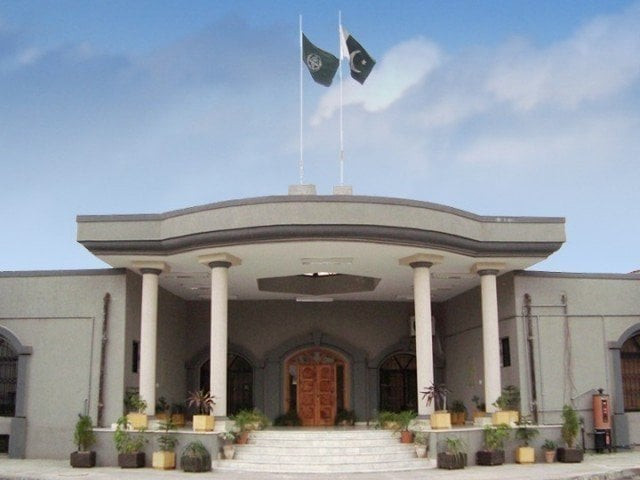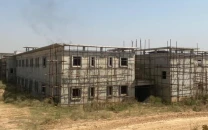IHC grills Commission for Inquiry on Enforced Disappearances
Commission told to submit report over non-compliance with production orders concerning missing persons

The Islamabad High Court on Thursday lashed out at the Commission of Inquiry on Enforced Disappearances over its failure to recover missing persons.
IHC Chief Justice Athar Minallah observed that the commission had failed to fulfil its responsibility -- during the hearing of a case pertaining to the recovery of Zahid Amin, who has been missing for eight years, and Sadiq Amin, who disappeared a year ago.
“The commission is a burden on the exchequer and it ought to justify its continued existence,” the IHC noted in its order.
Read Missing persons: PM to broach issue with ‘powerful quarters’
The court directed the commission to submit a clarification as to why it had failed to take effective action against the disappearances.
The commission should also submit a report on why it had failed to take action after its production orders for the recovery of the missing persons were apparently snubbed, the IHC added.
“Why didn’t the commission give its recommendations on the eradication of enforced disappearances to the federal government despite the passage of 10 years,” Justice Athar Minallah asked. “As per the record, the commission has never sought proceedings in the case that its production orders were ignored, the judge added.
Justice Minallah noted that the high court had time and again said enforced disappearances were a heinous crime.
“It is the responsibility of the commission to approach the families of the missing persons to facilitate them,” he added.
The order read that the court could turn a “blind eye to the repeated grievances of the loved ones of the missing persons regarding the treatment extended to them by the commission”. “It has been consistently noted that the proceedings before the commission are not of adversarial nature. The commission has to demonstrably show utmost empathy towards the petitioners and all other loved ones of missing citizens.”
Read more President Alvi directs HEC to take steps against racial profiling of Baloch students
During the hearing, the commission’s registrar told the court that the joint investigation team (JIT) had confirmed that Zahid Amin was forcibly disappeared.
“If it was a case of enforced disappearance, to whom did you issue the production order,” Justice Minallah retorted. “Are production orders just a formality,” the IHC CJ asked. He also inquired as to why the commission was not giving information to the petitioner.
Imaan Mazari, who was representing the families of the missing persons, informed the bench that a production order for the recovery Zahid Amin was issued on Sept 14, 2020.
The IHC CJ asked as to whether the commission had forgotten about its production order or those to whom the order was issued have refused to obey it.
The body’s registrar responded that nobody had said no to the commission.
“Did you seek proceedings against them for not complying with the production order,” the judge further asked.
The IHC CJ sought a report on the non-compliance with the production orders issued by the commission and directed it to facilitate the families of the missing persons. “When there is sufficient evidence to conclude that it is, prima facie, a case of ‘enforced disappearance’ then it becomes an obligation of the State and all its organs to trace the disappeared citizen. This obligation will remain effective and perpetual till the victim has been traced or credible information gathered through effective investigation regarding his/her fate. In addition, it becomes a constitutional obligation of each organ of the State to hold those public functionaries accountable who are responsible and who have failed in their duty to protect and trace the citizen who has gone missing,” the order read. The case has been adjourned till July 4.



















COMMENTS
Comments are moderated and generally will be posted if they are on-topic and not abusive.
For more information, please see our Comments FAQ